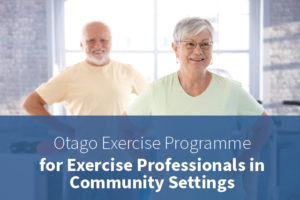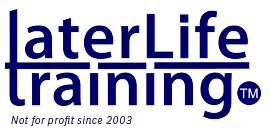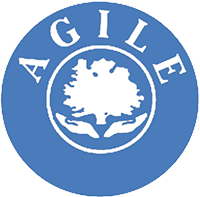4,136total OEP's trained
 Vision
Vision
To increase the reach and longer-term engagement in evidenced exercise opportunities whether at home, in small groups in the community or one-to-one when required) and achieve best possible outcomes for older people, prevent falls, injuries, improve cognition and independence.
- To understanding the evidence for exercise in the prevention of falls and where the Otago programme ‘fits’ within local exercise continuums.
- To identify why not all older people are the same, not all OEP Leaders are the same, and why not all strength and balance programmes reduce falls.
- To identify what works and doesn’t work when it comes to exercise to prevent falls
- Application of the principles of exercise training in relation to older people
- To recognise the opportunities of the OEP Leader in supporting behaviour change over-time (and achieve the required exercise dose to reduce falls)
- To develop the skills necessary to lead the OEP effectively to frailer older people with a high risk, or history of falls
OEP Leader training journey is a mix of online and face-to-face/blended learning approaches
The OEP can be led by a range of health professionals, and exercise leaders/instructors and should be implemented as part of a broader falls prevention service. L2 OEP Leaders should be working as part of an agreed pathway whereby suitability for participation in the OEP is assessed by an appropriate health professional. Both LLT OEP learning journey span approximately 10-12 weeks (regardless of profession and setting) and comprises;
-
- Pre-course learning (4-weeks) – online/mandatory guided learning hours (minimum 8-12 hours)
- Face-to-face training days 1 & 2 are consecutive – 9am-5pm
- Face-to-face training day 3 takes place 3-4 weeks after day 2 – practical and planning assessed elements
Online Pre-course training
Is designed to offer flexibility and allow theory elements to be completed in your own time. Other benefits include reduce travel costs and time required out of work.
How will the online training portal work?
- Resources are posted to you in time for your pre-course learning
- We enrol you onto the e-learning content 4-weeks prior to the face-to-face training days
- Pre-course learning tasks include narrated PowerPoint presentations for you to watch and listen to and some videos of all the OEP exercises for you to watch
- On completion of the learning tasks there are a series of multiple-choice question learning checks for you to complete (form part of final assessment)
- Therapy Support workers will be required to identify a mentor to support their learning journey and reflective practice action planning.
Completion of the online elements will require you to have;
- Access to computer & reliable internet
Software and Hardware requirements for your use of the training portal
There are no hardware requirements. There are software requirements – the minimum browser version that can be used is: recent Google Chrome(30+), recent Mozilla Firefox(25+), Safari 6, Microsoft Edge.
We do not recommend using smartphones or tablets for the e-learning work
Face to face training
Face-to-face training day content covers the leading and teaching skills of the OEP, and the behaviour change principles that support optimal outcomes. These days prepare you fully for assessed elements and implementation in your workplace.
Content
OEP Leader content for exercise professionals:
- Consists of learning how to effectively lead the original 22 OTAGO Exercise Programme in group settings (essential group management skills).
- Candidates will practice leading the OTAGO exercises considering the different needs of this frailer older people at risk of fall (and deemed suitable for OEP), and the safe management skills required for the OEP to be delivered in small groups.
- Behaviour change principles and strategies
- Underpinning knowledge covers the rate of ageing and falls in the ageing population and the effects of physical activity on health, physical performance, movement control, confidence, and quality of life in old age.
Resources
Candidates receive a copy of the “How to Lead” Manual developed by Later Life Training and an OEP home exercise booklet (other copies freely available for download and print).
Certification
Successful learners will receive a Later Life Training Certificate – OTAGO Exercise Programme Leaders Award
Level of Certification
The training was originally aligned with NVQ Level 2 in Care and Level 2 in Exercise and Fitness and will provide evidence which can be used towards specific units of NVQs but will not in itself cover the full range of an NVQ unit.
The OEP can be lead by a range of health professionals (i.e., physiotherapists), and qualified exercise leaders/instructors (L3/L4) who have additional skills and professional working parameters and should be implemented as part of a broader falls prevention service. The OEP is ‘pre-set’ programme of exercises, where OEP Leaders work alongside other health professionals and as part of a broader falls prevention service. Only higher skilled health professionals (physiotherapists) or L4 PSI’s may identify patient suitability and exercise progressions.
Because OEP is a little different to other certificates, and in line with our commitment to support leaders and instructors in increasing evidence-based exercise for older people and frailer older people, we consulted with CMC Insurance in order to provide a solution.
OEP Leader Insurance Information
We are delighted to confirm that Aviva (the underwriters for CMC Insurance) have agreed to include OEP cover within standard FitPro insurance. On completion of your OEP training you would need to to forward a copy of the certificate to FitPro, together with your Level 2 certificate. You can take out membership and insurance with FitPro on-line.
As a standard recommendation to ensure you are clear about insurance you hold, LLT recommend that you contact your insurance provider prior to applying for the training.
Introduction
The Otago Exercise Programme is cited in multiple national policy documents as a strength and balance programme (and behaviour change programme) evidenced in research to reduce falls. It was developed in collaboration with Professor John Campbell and Dr Clare Robertson of Otago University, New Zealand and with Julie Whitney of Kings College Hospital Trust, London, UK and launched by LLT in 2007.
The profile of falls prevention has significantly increased and been escalated because of the ageing population and the COVID pandemic. Strength and balance are words now common-place and falls prevention is now synonymous with the prevention of frailty, sarcopenia, and deconditioning. In the nations attempts to address the issue of falls, and as the NHS and services battle with cost savings and resources; evidenced based practice for exercise for falls prevention has become diluted, corners cut, dose reduced, and motivation somewhat depleted all resulting in sub-optimal outcomes for older people.
Using the LLT OEP Leader training
OEP Leaders may work across a range of settings (within the therapies in a hospital-based programme or leading falls and injury prevention sessions in community settings as part of a local health improvement plan or onward referral from the Falls or Care of the Elderly rehabilitation setting).
The OEP can be led by a range of health professionals (i.e., physiotherapists), and highly qualified exercise leaders/instructors (L3/L4) who have additional skills and professional working parameters and should be implemented as part of a broader falls prevention service. L2 OEP Leaders should be working as part of an agreed pathway where by suitability for participation in the OEP is assessed by an appropriate health professional.

In New Zealand, a targeted home exercise program (OTAGO), to women aged over 80, a population at high risk of falls, was taught to participants in their own homes by a physiotherapist and compared to social visits as a control (for review see Campbell & Robertson 2006). Exercises were individually prescribed from a set number of warm up, muscle strength and balance training exercises to perform 3 times a week for a year. They were also encouraged to walk outdoors at their desired pace building up to 30 minutes 2-3 times a week. The physiotherapist visited each intervention participant four times over the first two months following on with regular telephone contact. The exercise group had a significantly lower rate of falls. This exercise approach, now called the Otago Exercise Programme has been further investigated in four RCTs (Campbell & Robertson 2006). A study in Norway showed that over a 12 week period, OEP delivered in groups had better improvements in balance and function than a home based programme.
More recently, ProAct65+, a research study looking at primary prevention has shown that OEP is less effective at reducing falls in low risk patients than FaME (PSI) so it is clear that OEP is suitable for frailer older people at high risk of falls and is a starting point for moving people into more challenging balance exercise for ongoing gains.
A full list of research papers and articles forming the evidence base behind OEP can be found here
Please read the essential eligibility guidance before applying for this training.
Candidates complete four assessed elements;
- Completion of multiple-choice questions – online, graded as PASS/REFER
- OEP planning; health and safety, session planning (for practical skills assessment) – graded as PASS/REFER
- Practical skills assessment – group skills assessment graded as PASS/REFER
- Reflective practice graded as PASS/REFER
Assessment Appeals Procedure – If you wish to make an appeal against your assessment decision, please complete the form contained within our LLT Appeals Procedure.
We are a not for profit organisation and always strive to keep costs down. We have been able to avoid increases for 6 years but due to increases in course running costs, we have taken the decision to increase PSI and OEP course fees by £20.
To add further value, CPD opportunities and to support best practice implementation (of FaME and OEP). This increase in course fee will include 3 months FREE Education Connect Membership from the date of course completion. Full details will be included in your end of course results letter.
The full 3 day course cost is £440 plus VAT per applicant* and includes the Course Manuals, Assessments and Certification, plus for those that achieve full certification, 3 months FREE Education Connect Membership.
Refer/Defer Costs
Charges will apply if you do not attend on your signed up assessment day (irrespective of reason). Should you refer/defer, there are resit costs:
Practical assessment resit – £50 (inc. VAT)
Session plan resit – £25 (inc. VAT)
Our full list of Referral/Deferral fees can also be found in the OEP Terms and Conditions
*Payment must be received at least 4 weeks prior to face to face training days in order to allow access to the online training portal.
Exercise instructors are advised to liaise with there insurance provider before applying for a course.
Therapy Support Workers are required to identify a workplace-based support person/peer/ line-manager to support the actions and recommendations identified by LLT assessors during practical skills assessment and reflective practice action planning.
You can apply online here, but first we ask that you ensure you have read
- The Eligibility Guidelines and the statement about Medical Conditions and Learning Support Requirements below.
- The OEP Terms and Conditions for Exercise Professionals in Community Settings.
Course dates can be found here. If there are no courses currently in your area we will initiate a course as soon as there is enough interest but we cannot guarantee a timeframe for this.
Hosting a course
If you are interested in hosting an Otago course in your area, please contact the LLT Office. We do offer discounts to hosts depending on the number of applicants enrolled. Terms and Conditions for OEP Hosts can be viewed here.
Medical Conditions and Learning Support Requirements
We encourage everyone to be responsible for their own learning and ask that you please inform us, at point of booking, about any learning support requirements and/or medical conditions support that will help you to access our course content and learn effectively. All information will be treated confidentially, and we will work with you to agree reasonable adjustments to support your learning journey with us.


